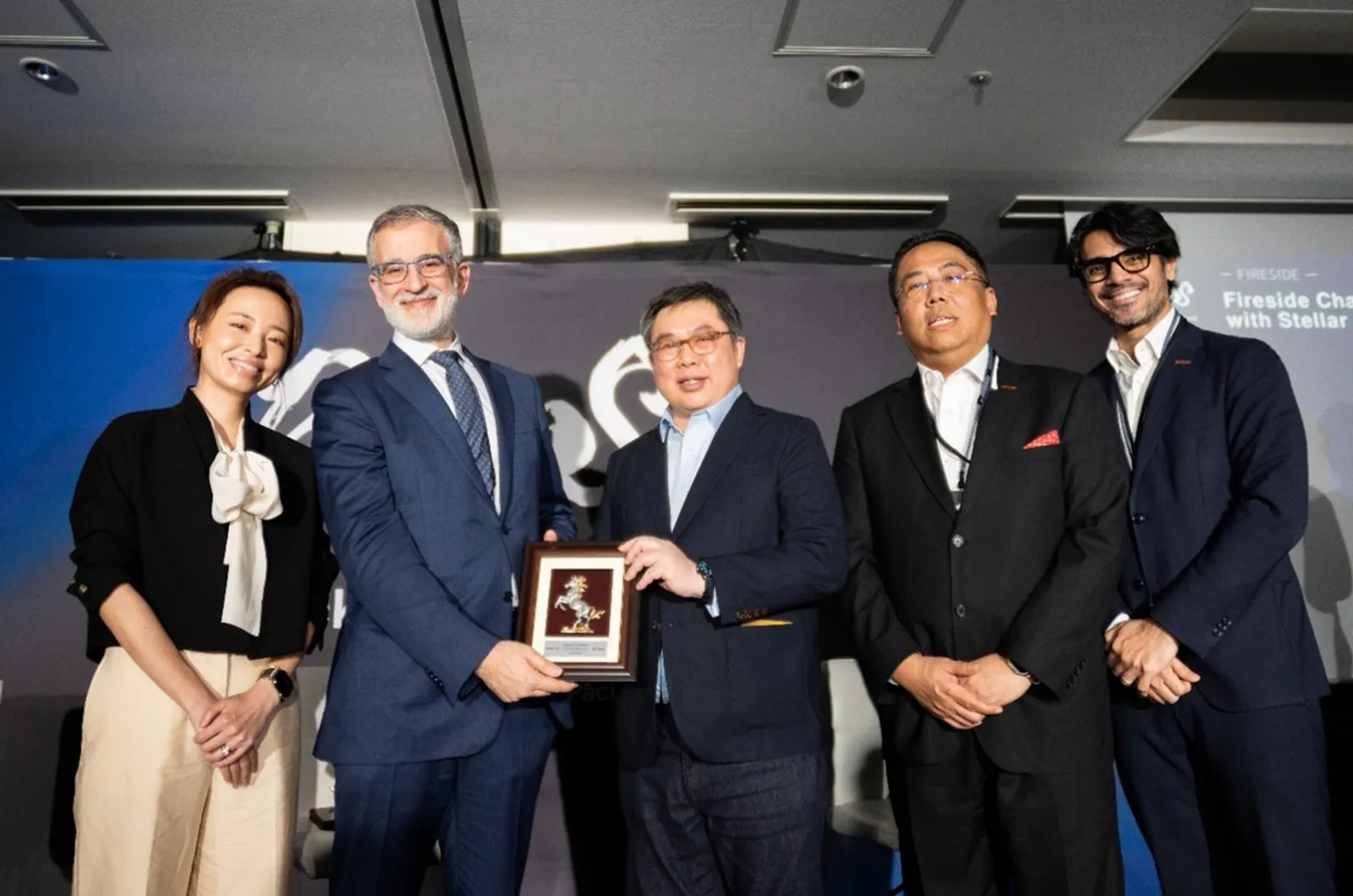In a transformative move for South Africa’s digital infrastructure landscape, a consortium led by Actis—a global investor known for sustainable infrastructure investments—has finalized the acquisition of a 100% stake in Swiftnet from Telkom. This deal, announced on 28 March 2025, not only strengthens the consortium’s presence in Africa’s telecommunications market but also sets the stage for an expansive drive toward 5G adoption and improved mobile network coverage across the nation.
The Actis-led consortium, bolstered by a mix of international and local investors, now controls 70% of Swiftnet, with the remaining 30% held by Royal Bafokeng Holdings. Importantly, the consortium’s composition includes the Mineworkers Investment Company (MIC), a 100% black-owned investment holding firm, whose involvement underscores a commitment to inclusive growth and diversification in South Africa’s strategic sectors.
Strengthening South Africa’s Digital Backbone
Swiftnet’s acquisition, valued at approximately US$370 million (ZAR6.75 billion), marks a significant milestone in South Africa’s ongoing efforts to expand its digital infrastructure. With over 4,000 telecom tower sites under its management, Swiftnet is well-positioned to become a market leader. The platform is set to build on its strong relationships with anchor tenants like Telkom while focusing on expanding coverage in rural areas and bridging the digital divide that has long affected remote communities.
This acquisition comes at a time when South Africa is rapidly evolving its telecommunications framework. The country’s transition from legacy technologies such as 3G and 4G to the more advanced 5G network is a critical priority—not just for enhancing mobile connectivity but also for driving broader economic growth. With faster speeds, reduced latency, and increased network capacity, 5G is poised to revolutionize industries ranging from healthcare and education to agriculture and manufacturing.
The Strategic Vision Behind the Deal
Actis has long been recognized for its strategic investments in digital infrastructure across emerging markets. With its total experience in the sector now reaching a combined enterprise value of approximately US$3.5 billion, the firm is no stranger to the challenges and opportunities inherent in transforming traditional network architectures into future-proof platforms. By investing in Swiftnet, Actis is not only expanding its portfolio but also signaling confidence in South Africa’s potential as a technological powerhouse within the African continent.
The Actis-led consortium’s decision to acquire Swiftnet can be seen as a strategic response to several critical factors:
- Expanding Mobile Network Coverage: South Africa’s diverse geography means that a significant portion of the population—particularly in rural areas—has historically had limited access to reliable mobile connectivity. By leveraging Swiftnet’s extensive tower network, the consortium aims to enhance network penetration and provide seamless connectivity across urban and remote regions alike.
- Driving 5G Adoption: With the global race toward 5G well underway, South Africa is eager to position itself as a leader in next-generation connectivity. The enhanced infrastructure will support not only faster download and upload speeds but also open the door to innovative applications such as smart city technologies, autonomous vehicles, and advanced IoT ecosystems.
- Boosting Local Economic Development: The consortium’s involvement, particularly with local players like MIC and Royal Bafokeng Holdings, reflects a broader strategy to promote economic empowerment and ensure that the benefits of digital transformation are widely shared. By investing in local assets and infrastructure, the deal supports job creation, skills development, and the overall growth of the local economy.
The Role of Key Investors in the New Digital Era
Actis: A Global Leader in Sustainable Infrastructure
Actis’ longstanding reputation as a forward-thinking investor in sustainable infrastructure has been a driving force behind this acquisition. The firm has a track record of identifying high-potential assets in emerging markets and turning them into success stories. With an eye on future trends, Actis is well aware that digital connectivity is not just a utility but a critical enabler of economic growth in today’s interconnected world. The Swiftnet acquisition is emblematic of this approach, blending high-impact investment with the promise of transformative returns.
MIC and Royal Bafokeng Holdings: Empowering Local Growth
The involvement of MIC, a 100% black-owned broad-based South African investment holding company, is particularly significant. MIC’s strategic focus on diversifying its portfolio to include sectors with strong structural tailwinds aligns perfectly with the digital transformation sweeping across South Africa. Their investment in Swiftnet is a testament to the growing confidence in local digital infrastructure projects and a clear indication that the company is committed to fostering long-term growth in the telecom sector.
Royal Bafokeng Holdings, the 30% shareholder in Swiftnet, brings to the table deep local expertise and a robust network of business relationships. Their involvement ensures that the consortium benefits from intimate knowledge of South Africa’s market dynamics and regulatory environment—an advantage that is essential for navigating the challenges of operating in a diverse and evolving landscape.
Building a Platform for the Future of Telecom
Swiftnet’s extensive portfolio of over 4,000 telecom tower sites is more than just a collection of physical assets; it represents the backbone of South Africa’s telecommunications network. The towers are critical nodes that facilitate the transmission of mobile signals, enabling everything from basic voice calls to high-speed data transfers. With the current infrastructure primarily built around 3G and 4G technologies, there is an urgent need to modernize these networks to support 5G services.
Expanding Coverage in Rural Areas
One of the most pressing challenges in South Africa’s telecommunications sector is ensuring that rural and underserved regions are not left behind in the digital revolution. Many communities in these areas still struggle with intermittent connectivity, which hampers educational opportunities, access to healthcare, and economic participation. The acquisition of Swiftnet is expected to play a pivotal role in addressing these disparities. By upgrading existing towers and deploying new ones in strategic locations, the consortium aims to significantly expand mobile network coverage and bring high-speed internet access to the remotest parts of the country.
This expansion is expected to yield a multitude of benefits. Rural communities, for instance, will have better access to online educational resources and telemedicine services. Local businesses will be able to tap into new markets and streamline their operations through digital tools, thereby stimulating economic growth and creating jobs in areas that have traditionally lagged behind.
Accelerating the Transition to 5G
The promise of 5G lies in its transformative potential—not only in terms of speed but also in its capacity to support a vast array of applications that were previously unthinkable. For South Africa, the shift to 5G represents an opportunity to leapfrog existing technological limitations and position itself as a leader in the digital economy.
The consortium’s vision for Swiftnet is clear: to create a tower platform that not only supports current mobile technologies but is also robust enough to underpin the future of digital communications. This means preparing the infrastructure to handle the data demands of smart devices, autonomous systems, and interconnected urban ecosystems. With enhanced network reliability and speed, the 5G rollout will enable real-time communication and data processing, which are crucial for applications ranging from industrial automation to emergency response systems.
The Broader Market Context: South Africa and Beyond
South Africa’s telecommunications market has witnessed significant evolution over the past decade. While the country has made strides in increasing mobile penetration, the need for continuous improvement remains. Global trends show that investments in digital infrastructure have become a cornerstone of economic resilience, particularly in emerging markets. The Swiftnet deal is a prime example of this trend, as it aligns with broader efforts to modernize infrastructure, boost connectivity, and foster economic inclusion.
The Impact on Local and Regional Economies
The benefits of enhanced digital infrastructure extend far beyond the telecommunications sector. Reliable connectivity is a fundamental requirement for the digital economy, influencing sectors such as finance, healthcare, education, and agriculture. In rural areas, for instance, better network coverage can transform the way farmers access market information, manage supply chains, and adopt modern agricultural practices. Similarly, schools and universities can leverage improved internet access to deliver digital learning, thereby enhancing the quality of education and preparing students for the digital age.
Moreover, the influx of investment from global players like Actis can have a ripple effect across the region. As the digital infrastructure improves, it is likely to attract further investments in tech startups, digital services, and even e-commerce platforms—each contributing to job creation and economic diversification. These developments are critical for a country like South Africa, which is working to overcome historical challenges and build a more inclusive, sustainable future.
Encouraging Sustainable Growth and Innovation
The strategic emphasis on sustainable infrastructure is not merely about expanding physical assets; it is also about fostering an environment where innovation can thrive. With the improved network capabilities that come with modernized tower platforms, South Africa is well-positioned to become a hub for technological innovation. The roll-out of 5G, for instance, is expected to spur the development of new applications and services that can drive efficiency across industries—from automated manufacturing systems to smart agriculture solutions.
Sustainable growth also means reducing the environmental impact of digital infrastructure. Modern telecom towers are increasingly designed with energy efficiency in mind, often incorporating renewable energy sources such as solar power. By investing in sustainable practices, the consortium is not only preparing for the future of connectivity but also contributing to global efforts to mitigate climate change.
Challenges and the Road Ahead
While the acquisition of Swiftnet presents numerous opportunities, it also comes with its share of challenges. The telecommunications sector is highly competitive and subject to rapid technological changes. As the industry evolves, companies must continuously invest in innovation, regulatory compliance, and network security to remain ahead of the curve.
Navigating Regulatory and Market Dynamics
Operating in South Africa’s telecommunications market requires a nuanced understanding of local regulations and market dynamics. The government has been proactive in promoting digital inclusion, but regulatory complexities and bureaucratic hurdles can sometimes slow down the pace of infrastructure development. For the Actis-led consortium, maintaining strong relationships with regulatory bodies and local stakeholders will be essential to ensure that Swiftnet’s expansion plans progress smoothly.
Furthermore, the market is witnessing an intensification of competition among towercos, mobile network operators, and tech companies. To secure a competitive edge, the consortium will need to leverage its extensive network of partnerships, invest in cutting-edge technologies, and continuously adapt to evolving consumer demands.
Ensuring a Smooth 5G Transition
The transition to 5G technology, while promising, is not without technical and operational challenges. Upgrading existing infrastructure, ensuring interoperability with legacy systems, and addressing cybersecurity risks are all critical components of a successful 5G rollout. The consortium’s ability to navigate these challenges will determine its long-term success and the extent to which South Africa can fully realize the benefits of next-generation connectivity.
A Human-Centered Approach to Digital Transformation
Beyond the technical and financial aspects of the acquisition, there is a human story at the heart of this transformative deal. The drive to expand mobile network coverage and enhance digital connectivity is ultimately about improving lives. For millions of South Africans—especially those in rural and underserved communities—better connectivity means greater access to education, healthcare, and economic opportunities.
Local communities stand to benefit significantly from the enhanced network infrastructure. Improved connectivity can empower small businesses, facilitate remote working opportunities, and enable community-based initiatives that harness digital tools for social and economic development. The human-centered approach adopted by the consortium reflects a commitment to ensuring that technological advancements translate into tangible improvements in people’s lives.
Moreover, the inclusive nature of the investment—highlighted by the participation of MIC and Royal Bafokeng Holdings—signals a broader commitment to economic empowerment. By involving local investors and stakeholders, the consortium is fostering a sense of ownership and responsibility that can help drive long-term sustainable growth. This collaborative model is not only beneficial for business but also serves as a blueprint for how global and local interests can align to create meaningful, lasting impact.
Future Outlook: Digital Horizons in South Africa
Looking forward, the acquisition of Swiftnet is likely to have far-reaching implications for South Africa’s digital landscape. As 5G networks begin to take shape, the country could emerge as a leader in digital innovation within the African continent. The convergence of global expertise, robust local partnerships, and a clear vision for the future sets the stage for a digital revolution that could transform industries and improve quality of life across the nation.
The next few years will be critical in determining the success of the consortium’s ambitious plans. Continuous investment in technology, proactive regulatory engagement, and a steadfast commitment to community empowerment will be essential to navigating the uncertainties that lie ahead. However, the current momentum is a strong indicator that South Africa is on the cusp of a new era—one in which digital connectivity becomes a driving force for economic inclusion, innovation, and sustainable growth.
The success of this acquisition will serve as a case study for similar initiatives across the continent. It demonstrates that with the right mix of global capital, local expertise, and a clear vision for the future, even the most challenging markets can be transformed. As investors and policymakers around the world take note, South Africa’s journey toward a fully connected digital future could become a beacon for emerging markets striving to overcome infrastructural and economic hurdles.
Conclusion
The acquisition of Swiftnet by an Actis-led consortium represents a bold and strategic move that is set to reshape South Africa’s telecommunications landscape. With a combined investment prowess reflecting an enterprise value of around US$3.5 billion, the consortium’s commitment to building a market-leading telecom tower platform is clear. By expanding mobile network coverage, accelerating the transition to 5G, and driving digital inclusion across urban and rural areas, this deal underscores the transformative power of strategic investments in digital infrastructure.
At its core, the acquisition is more than a financial transaction—it is a commitment to bridging the digital divide, empowering local communities, and fostering an ecosystem where innovation and sustainable growth can thrive. With robust local partners like MIC and Royal Bafokeng Holdings contributing their expertise, the consortium is well-equipped to navigate the complexities of the South African market and deliver on its ambitious vision.
Ready to take your career to the next level? Join our dynamic courses: ACCA, HESI A2, ATI TEAS 7 , HESI EXIT , NCLEX – RN and NCLEX – PN, Financial Literacy!🌟 Dive into a world of opportunities and empower yourself for success. Explore more at Serrari Ed and start your exciting journey today!
Photo source: Google
By: Montel Kamau
Serrari Financial Analyst
28th March, 2025
Article, Financial and News Disclaimer
The Value of a Financial Advisor
While this article offers valuable insights, it is essential to recognize that personal finance can be highly complex and unique to each individual. A financial advisor provides professional expertise and personalized guidance to help you make well-informed decisions tailored to your specific circumstances and goals.
Beyond offering knowledge, a financial advisor serves as a trusted partner to help you stay disciplined, avoid common pitfalls, and remain focused on your long-term objectives. Their perspective and experience can complement your own efforts, enhancing your financial well-being and ensuring a more confident approach to managing your finances.
Disclaimer: This article is for informational purposes only and does not constitute financial advice. Readers are encouraged to consult a licensed financial advisor to obtain guidance specific to their financial situation.
Article and News Disclaimer
The information provided on www.serrarigroup.com is for general informational purposes only. While we strive to keep the information up to date and accurate, we make no representations or warranties of any kind, express or implied, about the completeness, accuracy, reliability, suitability, or availability with respect to the website or the information, products, services, or related graphics contained on the website for any purpose. Any reliance you place on such information is therefore strictly at your own risk.
www.serrarigroup.com is not responsible for any errors or omissions, or for the results obtained from the use of this information. All information on the website is provided on an as-is basis, with no guarantee of completeness, accuracy, timeliness, or of the results obtained from the use of this information, and without warranty of any kind, express or implied, including but not limited to warranties of performance, merchantability, and fitness for a particular purpose.
In no event will www.serrarigroup.com be liable to you or anyone else for any decision made or action taken in reliance on the information provided on the website or for any consequential, special, or similar damages, even if advised of the possibility of such damages.
The articles, news, and information presented on www.serrarigroup.com reflect the opinions of the respective authors and contributors and do not necessarily represent the views of the website or its management. Any views or opinions expressed are solely those of the individual authors and do not represent the website's views or opinions as a whole.
The content on www.serrarigroup.com may include links to external websites, which are provided for convenience and informational purposes only. We have no control over the nature, content, and availability of those sites. The inclusion of any links does not necessarily imply a recommendation or endorsement of the views expressed within them.
Every effort is made to keep the website up and running smoothly. However, www.serrarigroup.com takes no responsibility for, and will not be liable for, the website being temporarily unavailable due to technical issues beyond our control.
Please note that laws, regulations, and information can change rapidly, and we advise you to conduct further research and seek professional advice when necessary.
By using www.serrarigroup.com, you agree to this disclaimer and its terms. If you do not agree with this disclaimer, please do not use the website.
www.serrarigroup.com, reserves the right to update, modify, or remove any part of this disclaimer without prior notice. It is your responsibility to review this disclaimer periodically for changes.
Serrari Group 2025
















